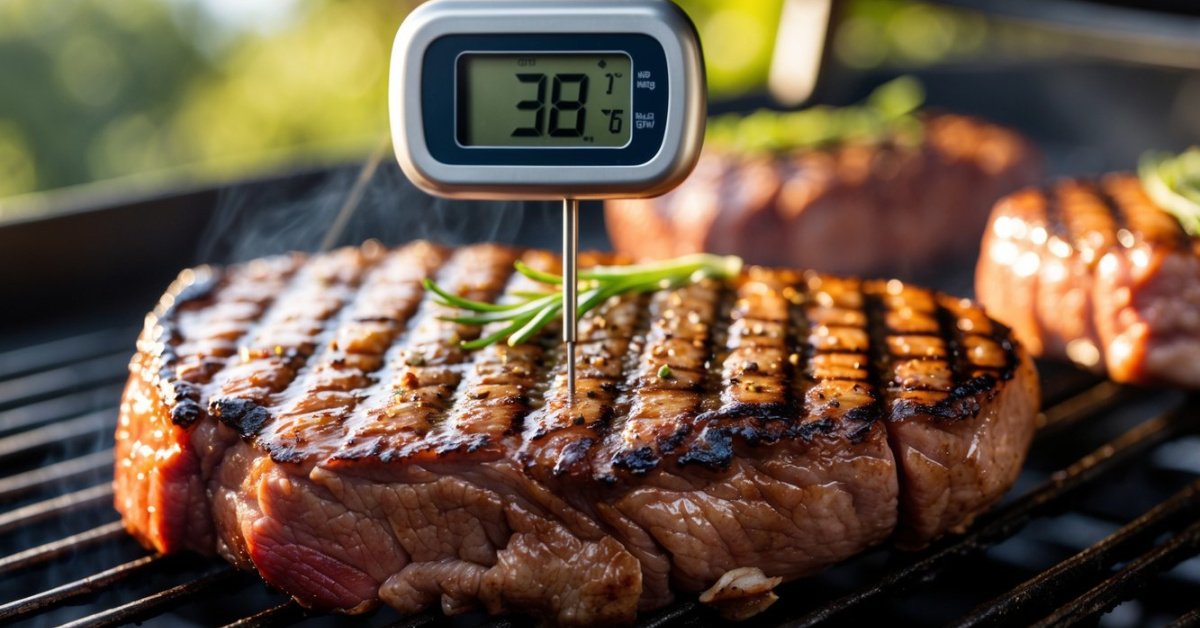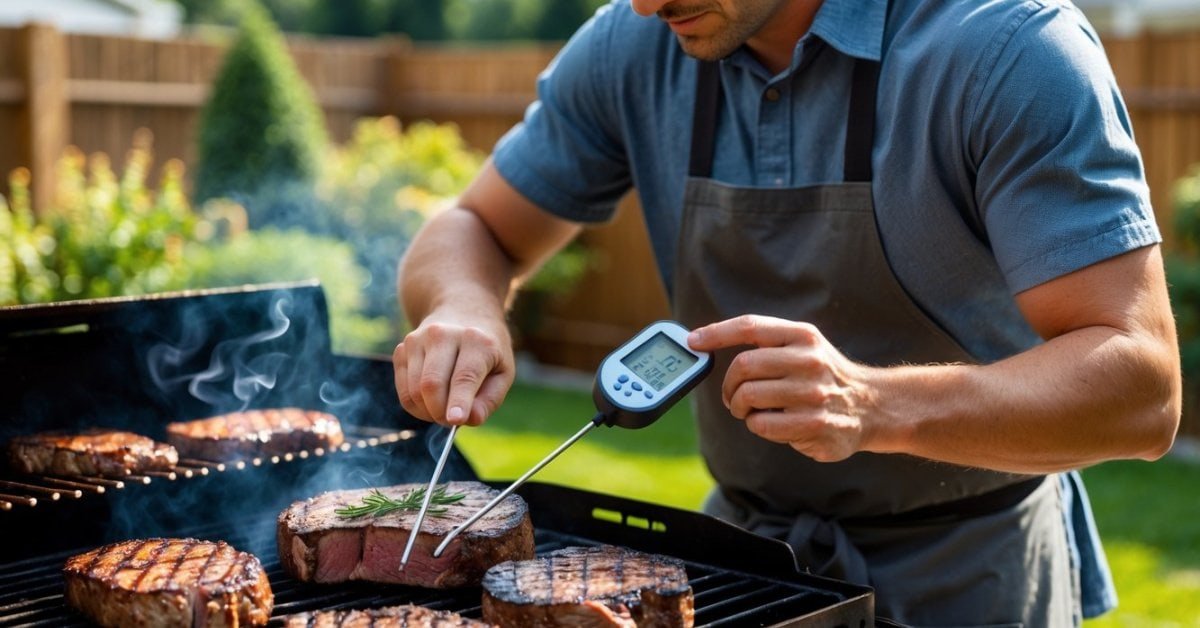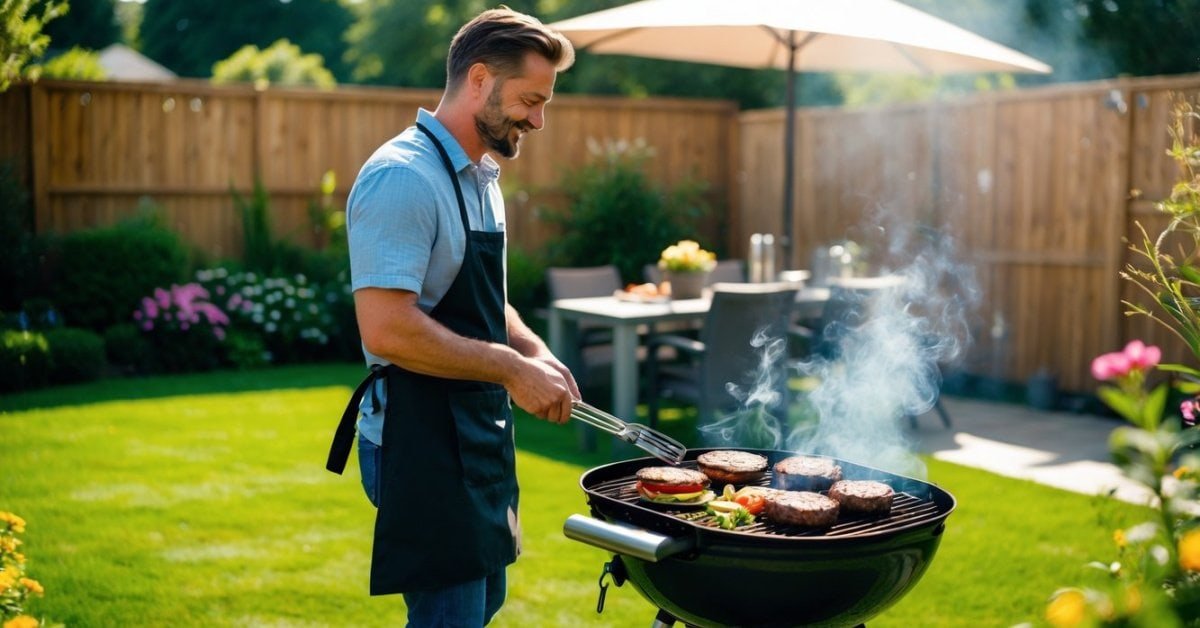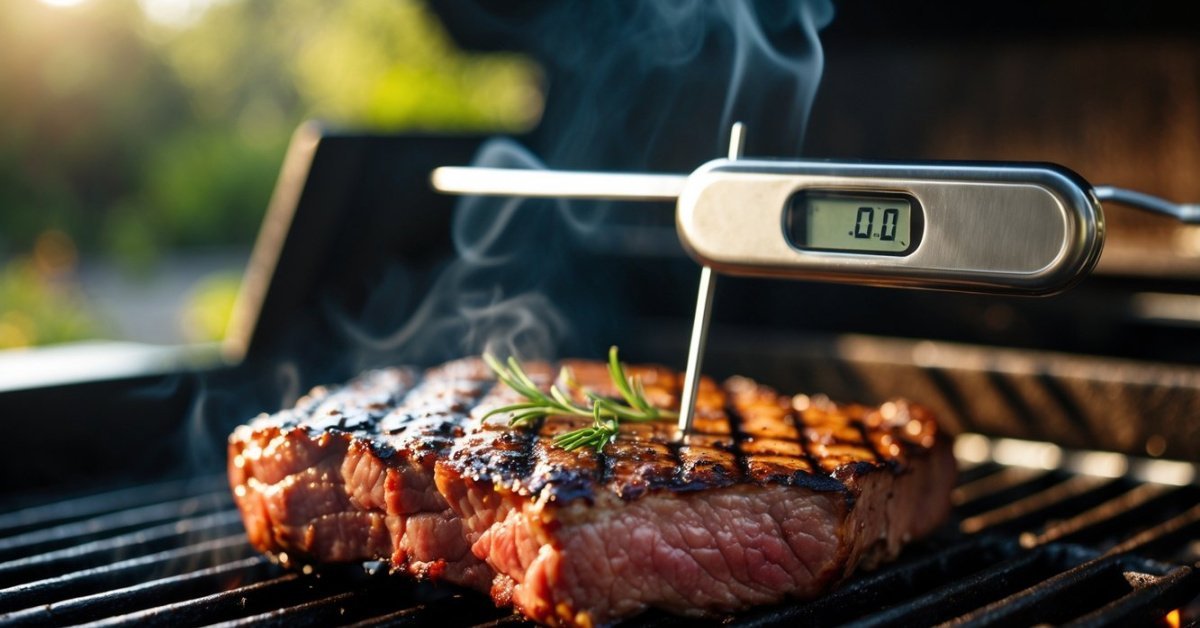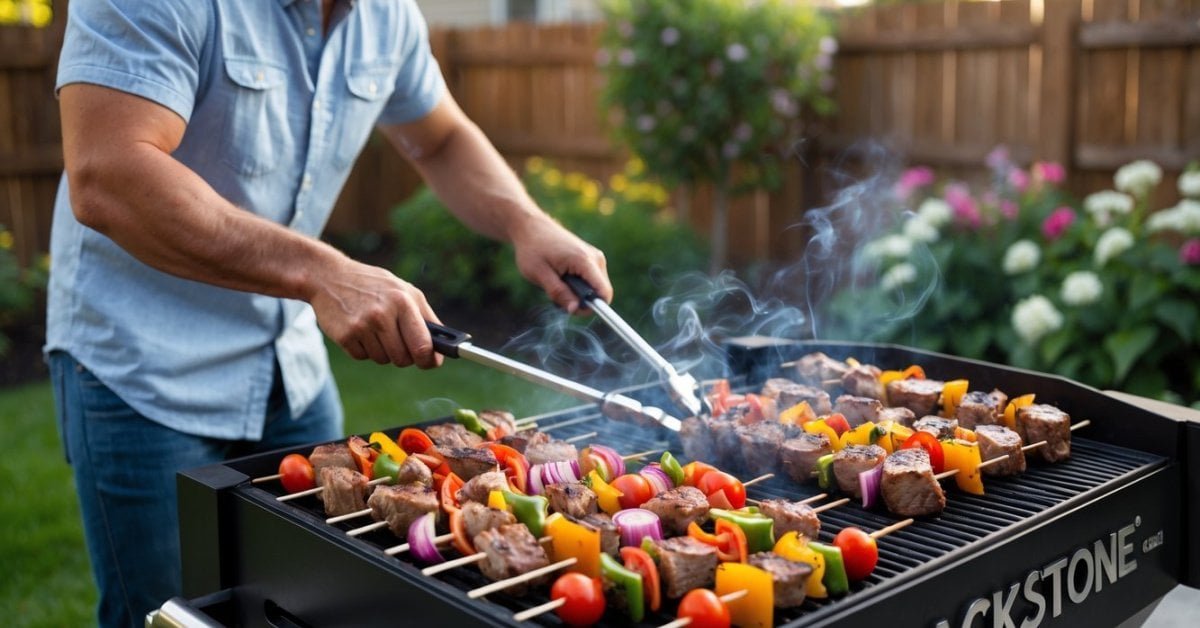Nothing ruins a backyard barbecue faster than overcooked steaks or dry chicken. I know the frustration of guessing if the meat’s done or cutting into it only to find it’s still raw inside. That’s where grilling thermometers come in—they promise precision and peace of mind.
But lately I’ve noticed a wave of high-end grilling thermometers hitting the market with fancy features and hefty price tags. Do these gadgets really make a difference or are they just another expensive accessory? Before I splurge on the latest model I want to find out if high-end grilling thermometers are truly worth the investment.
Understanding High-End Grilling Thermometers
High-end grilling thermometers use advanced tech to boost cooking accuracy and reliability. I’ve tested dozens while grilling brisket, ribs, and even veggies, and these premium tools consistently handle demanding BBQ sessions.
Key Features of Premium Models
- Wireless Connectivity
Most top-tier thermometers use Wi-Fi or Bluetooth for remote monitoring. I track temps from my phone instead of standing by the grill, even from 100+ feet away with models like FireBoard or MEATER Block.
- Multiple Probes
High-end options often include 2 to 6 probes. I monitor different cuts—like pork shoulder, sausage, and jalapeños—at the same time.
- Fast and Accurate Sensors
Premium thermometers reach within ±0.7°F accuracy, using thermocouple or platinum RTD sensors. I’ve seen Thermoworks and Signals give a result in 2-3 seconds.
- App Integration and Smart Alerts
Most offer apps for graphing temps and setting custom notifications. I get alerts when a steak reaches medium-rare or when my smoker’s temp drops, so I never miss a moment.
- Build Quality and Durability
Materials like commercial-grade stainless steel, weatherproof casings, and solid connectors mark these models. I’ve left my Thermapen in Texas summer heat and rain, and it kept on working.
Comparison With Standard Thermometers
Premium grilling thermometers consistently surpass basic options in performance and flexibility:
| Feature | Standard Thermometers | High-End Thermometers |
|---|---|---|
| Wireless Monitoring | Usually absent | App/Wi-Fi/Bluetooth enabled |
| Number of Probes | Typically 1 | Usually 2-6 |
| Response Time | 8-20 seconds | 2-3 seconds |
| Temperature Accuracy | ±2°F to ±5°F | ±0.7°F or better |
| Durability | Plastic, not weatherproof | Stainless, weather resistant |
| Smart Features | Lacking | Alerts, graphing, logging |
High-end thermometer performance lets me manage multi-zone BBQs, nail tricky doneness targets for brisket, and document recipes. Standard models—example: basic dial or single-probe digital sticks—handle simple grilling, but they fall short for serious smoking, competition BBQ, or backyard feasts requiring tight control.
Evaluating Price Versus Performance
Comparing high-end grilling thermometers to basic options always comes down to how well extra dollars translate to actual improvements during everyday BBQ sessions. I’ve tested dozens of models side-by-side, paying close attention to the details that impact real grilling results.
Accuracy and Reliability
Accuracy and reliability make the biggest difference when grilling brisket, tri-tip, or ribs. High-end thermometers, like the ThermoWorks Signals or MEATER Block, usually hit within ±1°F of true temperature in independent tests, while entry-level probes often vary by 5–10°F (source: AmazingRibs.com 2023 thermometer reviews). Consistent readings help avoid dry steaks and undercooked chicken, especially on long cooks. Advanced models also recover quickly from lid openings and alert me instantly to rapid temperature swings, which less expensive ones miss. Multiple probes offer confidence for managing different meats at once. When I’m catering or feeding a crowd, these features save time and reduce stress.
Durability and Build Quality
Durability and build quality matter most when thermometers face Texas heat, gusty winds, or greasy BBQ pits. High-end models, like the FireBoard 2 or Thermapen ONE, use reinforced cables, waterproof housings, and industrial-grade sensors that stand up to daily use and rough handling. Budget options, by contrast, crack under dropped lids or fail after a single rainstorm. I’ve used premium units for five years with no problems, while inexpensive ones have needed replacement after a single season of competitive BBQ. That long-term reliability makes costly thermometers more economical for frequent grillers who don’t want to keep buying replacements.
Additional Benefits of High-End Thermometers
High-end grilling thermometers add layers of functionality beyond temperature readings. I’ve found these extras transform my approach to both backyard BBQ and big events.
Smart Technology Integration
Smart technology integration separates high-end grilling thermometers from basic ones. I rely on features like WiFi and Bluetooth connectivity for remote monitoring across my yard. Brands like MEATER and ThermoWorks push app integration, offering real-time data, temperature graphs, and customizable alerts straight to my phone. I use cloud syncing to check temps while prepping sides or chatting with guests. Some models support voice assistant compatibility—Alexa or Google—streamlining multitasking during cooks. Smart integration means I don’t need to babysit the grill, even with complex smokes or lengthy roasts.
User Experience and Convenience
User experience and convenience stand out immediately with premium grilling thermometers. Large, backlit displays make it easy for me to read results day or night. Touchscreen controls reduce setup time, which matters when juggling multiple proteins. High-end probes detangle easily and wipe clean after greasy cooks, and the magnetic backings or sturdy bases keep the units secure on any grill cart. I love being able to set multiple alarms for different doneness levels, especially when handling brisket, ribs, and chicken together. Storage cases and integrated cord wraps make transport and cleanup simpler, whether I’m hosting in my backyard or helping out at a family barbecue.
Potential Drawbacks of Expensive Thermometers
High Cost
Paying $100–$300 for a high-end grilling thermometer impacts the overall budget for BBQ gear. Many budget models, like the ThermoPro TP20 or Weber iGrill Mini, cost under $60 and cover most cooking basics. Spending more only adds value if advanced features get frequent use.
Complexity
Navigating advanced app settings, adjusting calibration, and linking wireless connections on premium thermometers slows down setup. Some models, like the MEATER Block, require WiFi pairing and firmware updates, which aren’t as intuitive for new users compared to simple analog or basic digital probes.
Potential Over-Engineering
Features like multiple programmable alarms, analytics, and app dashboards on high-end thermometers, such as the ThermoWorks Signals, might overwhelm or go unused for basic cooks. Simpler devices accomplish the same result for single steaks, burgers, or smaller family meals.
Battery and Connectivity Issues
Smart thermometers rely on Bluetooth, WiFi, or rechargeable batteries, introducing error points. Lost connections, app crashes, or battery drains have interrupted my backyard grilling sessions more than once. Basic models with simple screens avoid these interruptions.
Maintenance and Care
Advanced gear often uses proprietary parts or charging docks that break or get lost more easily. Replacement probes for premium thermometers sometimes cost $20–$40 each. Cleaning sensitive electronics and water-resistant probes takes more care compared to tossing a $15 digital stick in the dishwasher.
Not All Features Fit Every Cooking Style
Frequent feature upgrades, such as cloud dashboards or integrated meat databases, suit large-scale BBQ events or competition teams better than casual cooks. Basic backyard grilling, such as weeknight burgers, rarely takes advantage of the full tech feature set.
Who Should Invest in a High-End Grilling Thermometer?
Serious BBQ Enthusiasts
I recommend high-end grilling thermometers for passionate BBQ fans handling briskets, pork shoulders, or whole birds. Consistent temperature accuracy and reliable alarms make it possible for me to smoke brisket for 12 hours without over- or undercooking. Models like ThermoWorks Signals help me check temps while prepping sides or relaxing with guests.
Competition Cooks and Caterers
I rely on premium thermometers when grilling for crowds, running pop-up BBQ events, or catering large parties. Multiple probes and remote monitoring let me track several meats at once—brisket, ribs, and sausage—with tight temperature control, which is essential for batch cooking where timing and consistency matter. My old BBQ food cart in Texas depended on this kind of precision.
Gadget Lovers and Home Chefs
I appreciate advanced features like app connectivity and customizable alerts as a BBQ tinker. High-end models with WiFi or Bluetooth, such as MEATER Block, make monitoring convenient from my phone. I find integrated apps handy for tracking temperature graphs and keeping journals of my favorite recipes.
Frequent Grillers Seeking Reliability
I suggest premium thermometers to frequent grillers who need gear that stands up to the elements. Durable construction means I don’t worry about busted probes or dead batteries during a backyard feast. In my experience, these units outlast basic models over years of regular BBQ.
Anyone Who Values Effortless Cooking
I consider high-end grilling thermometers a time-saver for cooks who want foolproof, stress-free meals. Backlit displays, easy calibration, and smart storage make cleanup and daily use simple. My workflow streamlines when I use responsive, accurate tools that need less fiddling mid-cook.
Occasional Grillers on a Budget
I don’t suggest investing in premium models if grilling happens a few times a year, or if dependable accuracy and connectivity aren’t top priorities. Many casual backyard cooks find basic models suitable for burgers, steaks, and chicken. Simple digital probes provide enough assurance for those who value cost over advanced features.
Conclusion
After weighing the pros and cons I find that high-end grilling thermometers really shine for those who value precision and convenience in their BBQ experience. While the price tag can be a hurdle the added features and reliability make a noticeable difference for anyone who grills often or wants to step up their game.
For casual cooks a basic model might do the trick but if you love experimenting with new recipes or hosting big gatherings a premium thermometer could be a game changer. Ultimately it comes down to how much you grill and what kind of experience you want at the grill.

